'On a countdown to catastrophe': UN sounds alarm on Afghanistan's food crisis
Millions of people in crisis-stricken Afghanistan are on the brink of starvation with the onset of winter, the UN World Food Program (WFP) has warned.
According to the UN agency, more than half of the population of Afghanistan – about 22.8 million people – is battling acute shortage of food, while 3.2 million children under five are at the risk of acute malnutrition.
In a statement released on Monday, David Beasley, executive director of the WFP, said the country is “on a countdown to catastrophe”.
“Afghanistan is now among the world's worst humanitarian crises, if not the worst,” Beasley said, warning of a “total disaster” if timely action is not taken.
“This winter, millions of Afghans will be forced to choose between migration and starvation unless we can step up our life-saving assistance,” he added.
Nearly $10 billion in Afghanistan’s national assets have been held by the US Federal Reserve since the Taliban laid siege to Kabul in August and overthrew the US-backed government.
UN chief Antonio Guterres has warned of “make or break moment” for Afghanistan, with the economic institutions slowly breaking down in the country.
According to the latest Integrated Food Security Phase Classification (IPC) report, around 23 million Afghans will be facing “crisis” (IPC Phase 3) or “emergency” (IPC Phase 4) levels of acute food insecurity, unless basic food needs are met. Phase 4 is one step from a famine.
The food warnings came in the wake of Taliban spokesman Zabihullah Mujahid’s recent comments on humanitarian crisis facing the country.
“We are trying to arrange and distribute, including food and clothing. All worries will be resolved,” Mujahid was quoted as saying by the AFP on Saturday.
“Regarding the drought, we hope to have a wet winter. But if the drought continues we will take appropriate measures in the spring,” he added.
Children’s dire situation
In his remarks to Reuters on Monday, Beasley raised an alarm over children’s situation in the war-torn country. He said children are “going to die” and things are “going to get a lot worse.”
“I don't know how you don't have millions of people, and especially children, dying at the rate we are going with the lack of funding and the collapsing of the economy,” he said.
The food crisis, exacerbated by climate change, was dire in Afghanistan even before the Taliban came to power, whose new government has been blocked from accessing assets held overseas.
Under the previous US-backed government in Kabul, around 43 percent of the South Asian country’s GDP came from foreign aid, according to the World Bank.
But still, as former president Ashraf Ghani admitted July last year, 90 percent of the country’s population lives below the poverty line, with less than $2 daily income.
A report by the UN Office for Coordination of Humanitarian Affairs in January this year noted that around 18.4 million people in Afghanistan were in need.
Beasley said the frozen funds should be channeled through the agency, in order to be used for management of the crisis.
“You've got to unfreeze these funds so people can survive,” he asserted.
The UN food agency needs up to $220 million a month to partially feed tens of millions of vulnerable people in Afghanistan as the winter approaches.

Taliban says US has lifted $10 million reward for information on deputy chief Haqqani
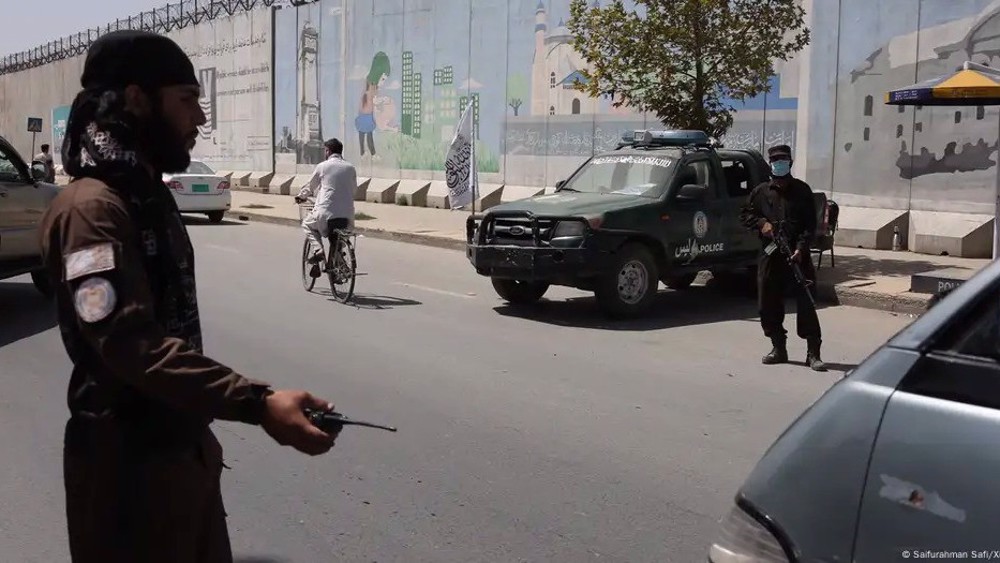
Deadly bombing attack targets Taliban ministry building in Kabul
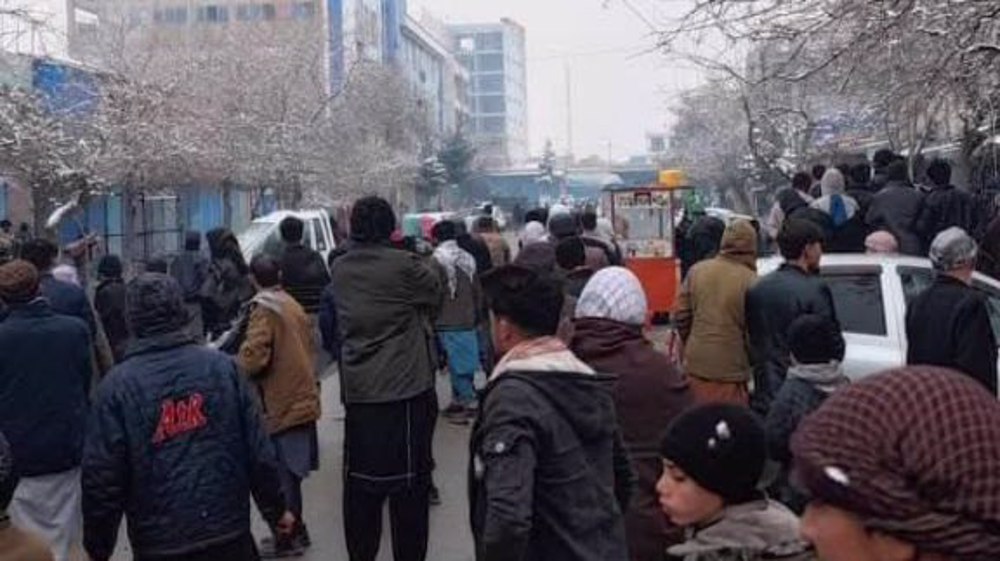
Daesh claims deadly bombing attack in northern Afghanistan
VIDEO | An insider's view of Iran: Marvast in Yazd
VIDEO | An insider's view of the country: Termeh
Yemeni forces strike key Israeli targets with ballistic missile, kamikaze drone
Iran unveils legal strategies for SCO states to counter challenges
Gaza’s slow death: How aid blockade has pushed Palestinians to the brink
US plan requires Ukraine to give 20% of territory to Russia: Report
Iran: New sanctions show US 'lack of goodwill' in talks with Tehran
Charred bodies found in school as Israeli strikes kill dozens in Gaza


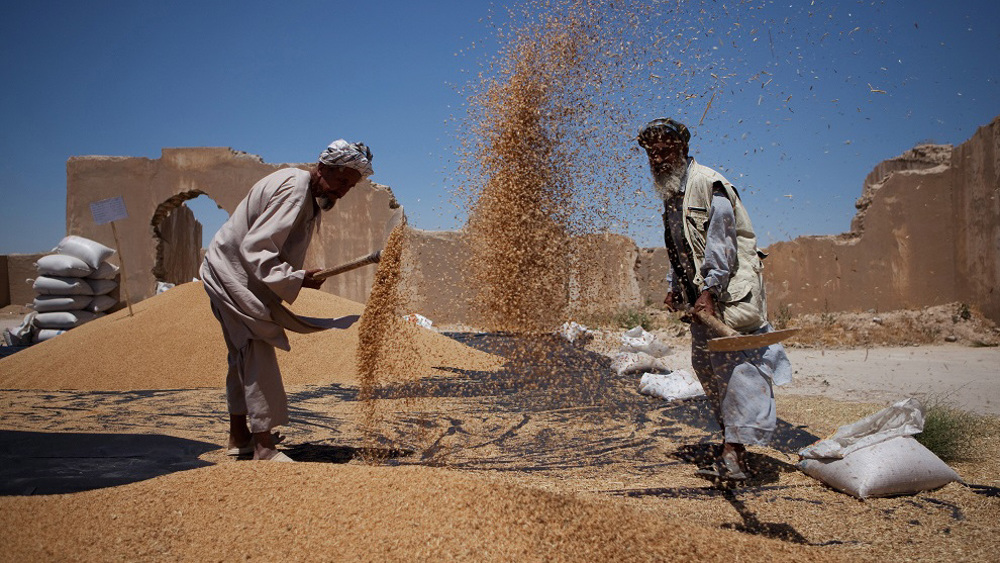




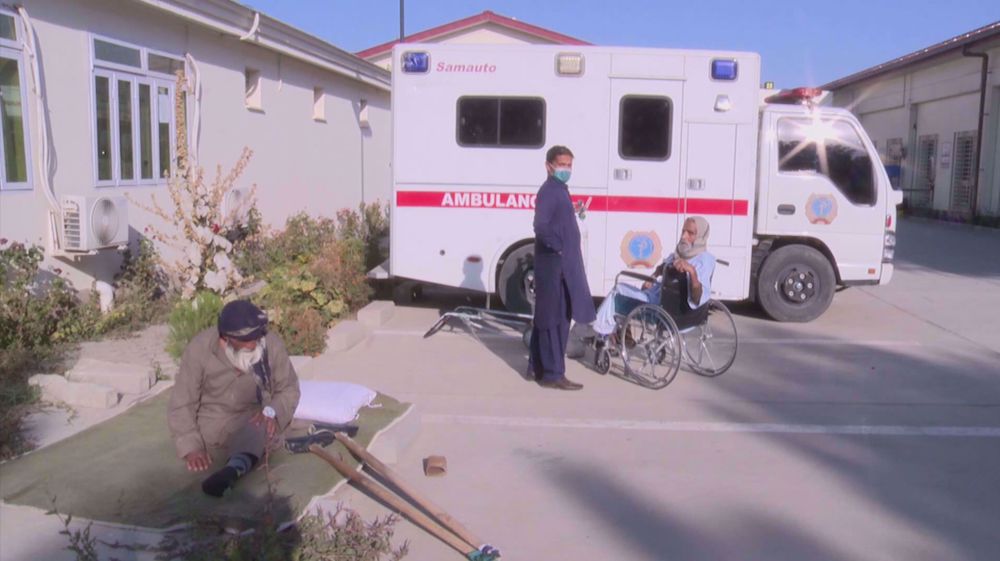
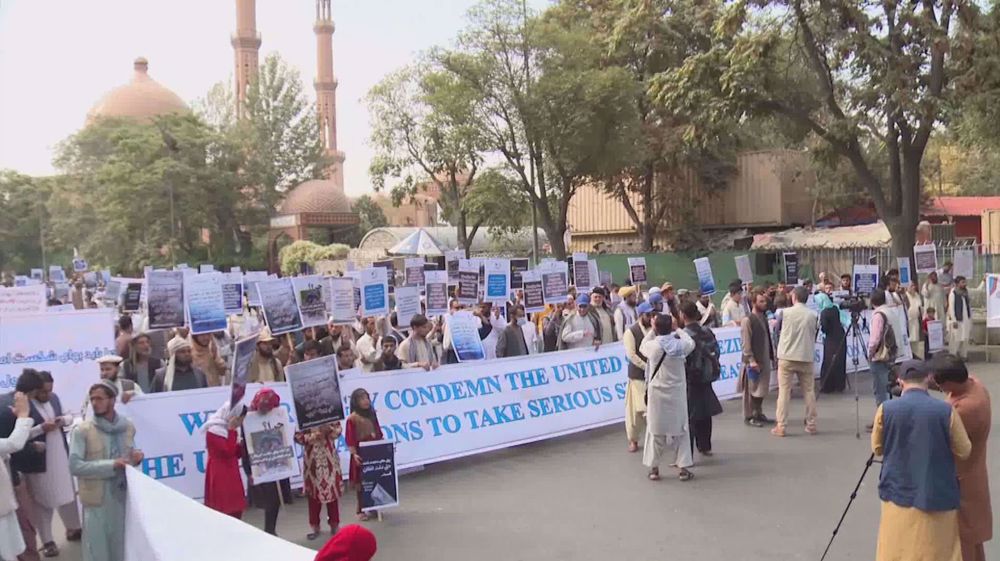
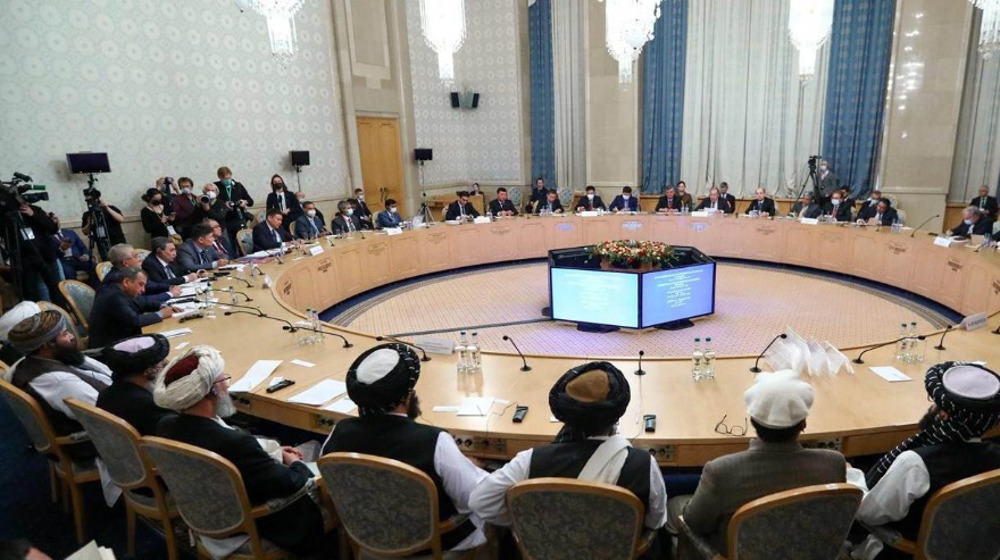
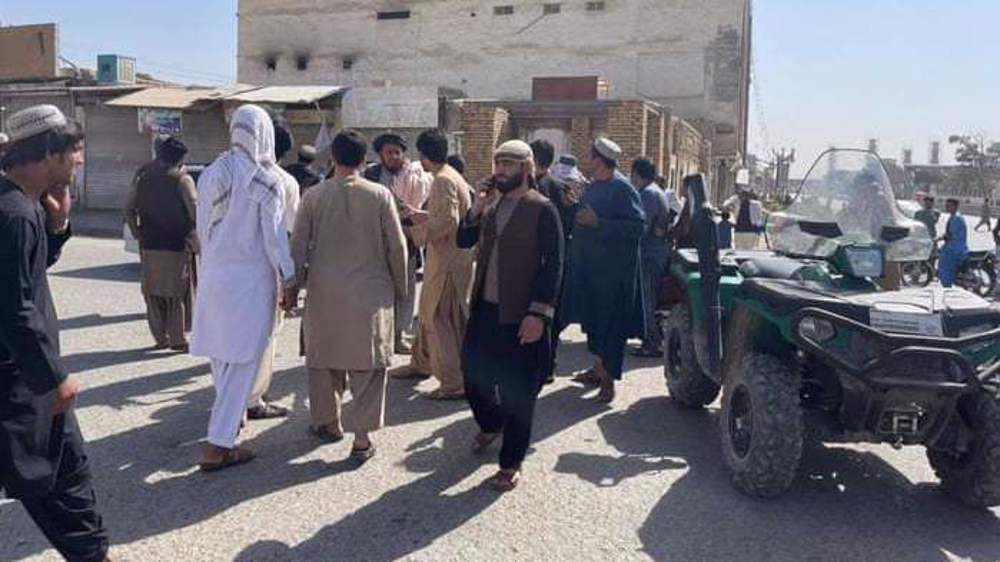

 This makes it easy to access the Press TV website
This makes it easy to access the Press TV website